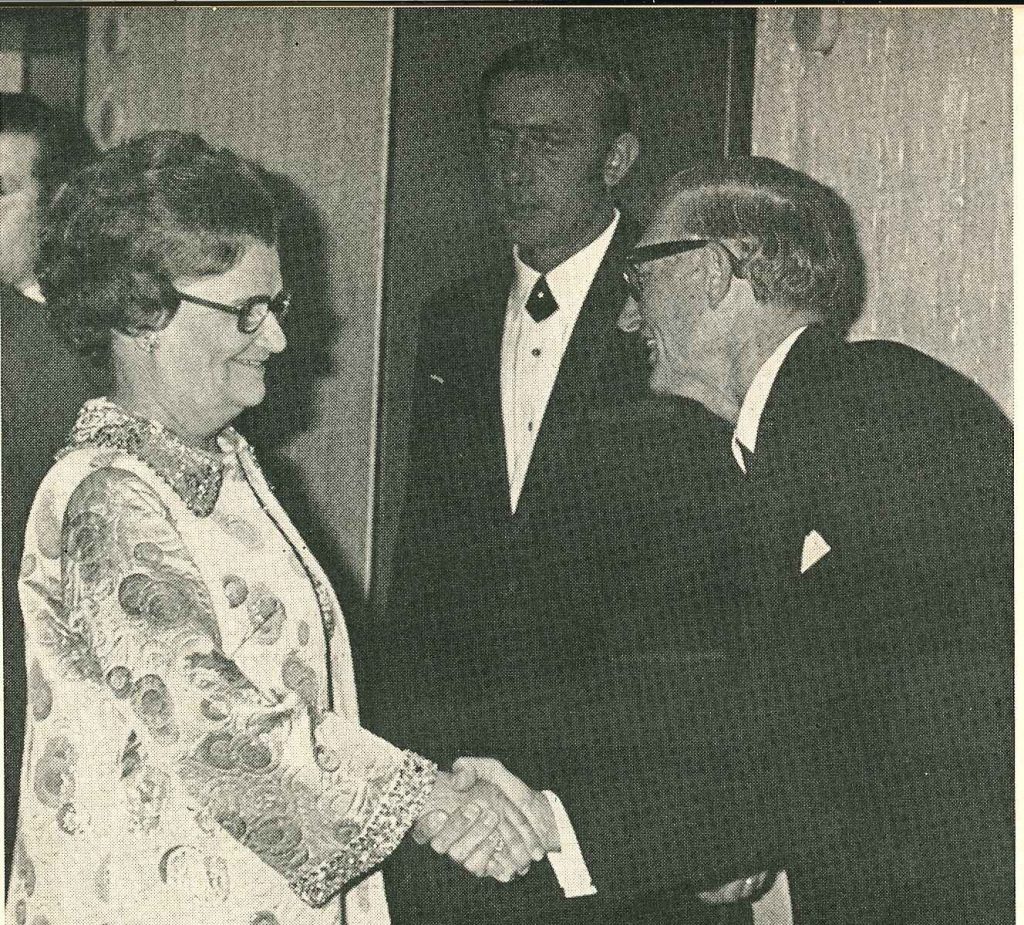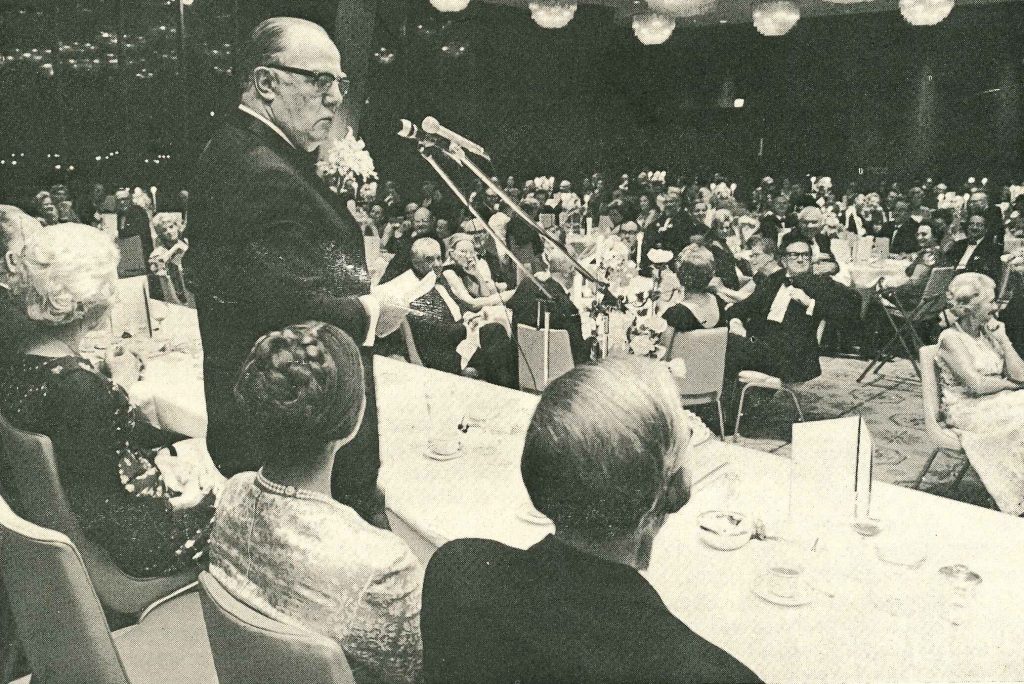A Jubilee message from the Chairman - Dr R L Straszacker

On the 1st Match 1973 ESCOM was 50 years old – a comparatively youthful newcomer to the ranks of public utilities with a more or less equally large installed capacity elsewhere in the world. In South Africa however, it is an age on which we can look back with pride by reason especially of the phenomenal growth which has marked this half-century of its existence. In this period the country has developed away from its agricultural economy supported by a number of gold mines and reached a highly industrialized level where practically all our requirements can be manufactured locally. This applies not only to basic metal industries such a steel, chrome vanadium and aluminum but also to extremely sophisticated electronic apparatus and highly specialized armaments. In many fields the Republic already self-sufficient and is actively engaged in building up an agricultural and industrial export market.
All this this has been made possible because ESCOM ensured that power could be supplied wherever and whenever required. ESCOM has grown rapidly from a half dozen geographically isolated small independent Undertakings to the present integrated stage where all power is now generated in one nationwide undertaking which supplies approximately 80% of the country’s requirements in an area stretching from Cape Town in the far Southwest to Phalaborwa in the Northeast, from Durban in the East to Kimberley and Prieska in the Northwestern Cape and to East London and parts of the Transkei in the Southeast with the Witwatersrand.
There are only a few areas on the map of the Republic which are not depicted in colour in ESCOM’s Annual Reports as ESCOM areas of supply granted to it by the Electricity Control Board. The small area between the Cape Western and Orange River Undertakings is shrinking rapidly as thee two areas grow closer to one another. Clear signs already exist that a strongly growing demand for power will also develop in the near future in the Northwestern Cape so that this corner will shortly no longer be a large while space on the map.
Throughout these years ESCOM has faithfully carried out the task entrusted to it of supplying power in adequate amounts at the lowest rates. Although they also moved upwards during the past few years under the heavy pressure of inflation and sharply rising interest rates, there have been long periods in which they remained practically unchanged and could even be reduced in some instances. Nevertheless the price structure of ESCOM power was maintained on a much lower level than that caused by average increases in practically all other sectors of the economy.
We definitely do not feel over-gratified about what has been achieved during the past fifty years but nevertheless the Commission has every reason to be proud of what its numerous employees have been able to do in days gone by. I also know that everyone of us will endeavour as diligently as in the past to carry on the pattern of performing an extremely important service of our people in the ensuing fifty years.
Much will happen during the second half-century in the field of power supply and distribution. There are no signs of the growth rate slowing down. In the year 2 000 ESCOM’s installed capacity will undoubtedly top the 60 000 MW mark. A considerable proportion of this will be nuclear power even though it is not clear at this stage what type of reactor will be used predominantly. What is however, abundantly clear is that great further developments will take place in the nuclear field. In this scheme of things coal will still occupy its rightful place.
In addition the as yet untapped hydro potential of Natal and the Transkei will be fully utilized. Furthermore, increasing use will be made of pumped storage schemes where they are geographically feasible while ha turbines will also be used on a growing scale.
The future therefore holds its full quota of tasks as a challenge which ESCOM will have to meet from its new headquarters to the north of Johannesburg.
In expressing my personal thanks to all our employees white and non-white, for their contribution to the achievements of ESCOM’s first fifty years. I now call upon them to exceed their efforts of the past in the knowledge that they will derive gratifications not only from the material things with which word is rewarded but also from the spiritual conviction that they are contributing an important share to the welfare of our country South Africa

